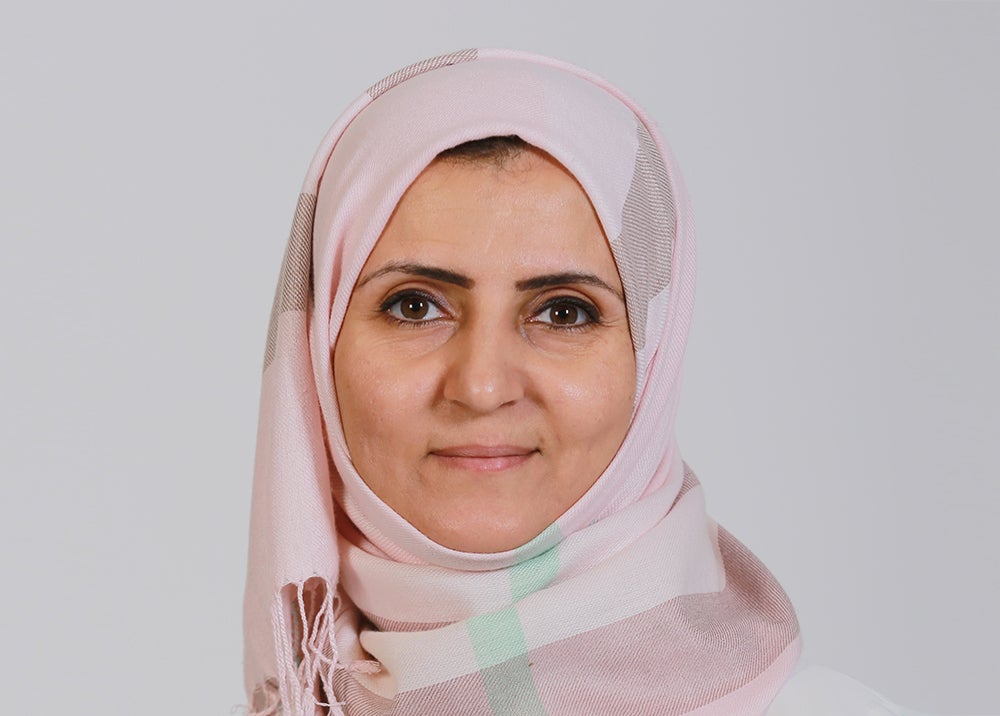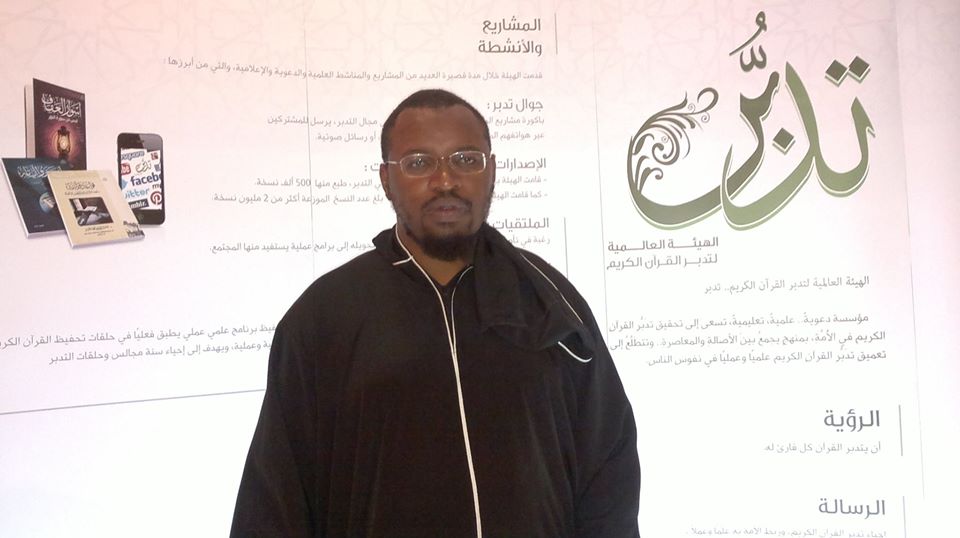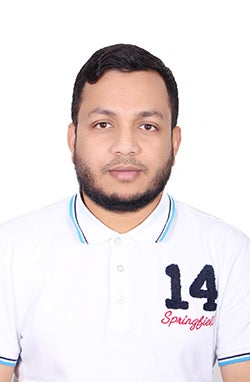
In the current lockdown due to COVID-19, the whole country is having to adapt to an unprecedented situation and many are finding it difficult to cope.
We spoke to three alumni from Hamad Bin Khalifa University (HBKU) to find out how they are helping and supporting the needs of their respective communities to better cope during this situation.
Najla Hamoud
College of Humanities and Social Sciences
As teachers, we work online not only with our students with whom we are familiar, but also with families who are dealing with quarantine as well as the stress of learning new technologies to support their children.
Our role is to be calm and mindful of what is happening on the other side of the screen. We had the opportunities to be trained; these parents did not. It is not only academics that we should be concerned with; most important is the well-being of the children and their families. We understand that the students are missing their classmates, the school environment, and their teachers.
Teachers have to make sure the students are not missing much of their academic subjects this year. Through assigning activities, we have to make distance teaching and learning as engaging and fun as possible. Meeting with students online keeps the social and emotional bonds tight, which is a much-needed aspect at this moment.
However, teachers are also affected by the quarantine, therefore checking on colleagues' emotional state is also very important. Many teachers are expatriates so they are also worried about their families abroad. We are one team; if one falls, we all fall.
As soon as there was concern about the outbreak of COVID-19, Qatar Foundation was proactive in preparing for a potential lockdown of schools and universities. Educators were trained to use multiple programs and platforms in order to communicate and teach online in the case of an emergency lockdown. Several meetings and discussions took place regarding different scenarios that might occur.
We want our students to feel that school still excites; it is simply a different version. It is an excellent way to stay connected and to raise hope. By keeping the learning process going, students and families are busy and engaged, so it consumes their time and shifts their energy to something productive. My job as a teacher is to show students that they are not alone during this distressing time and that we are all going through this together.
Shaibu Asali
College of Islamic Studies
 As a graduate of the College of Islamic Studies, my efforts have been limited to my area of specialization. I have been advising the Muslim community in Zimbabwe about the dangers of the COVID-19 pandemic and the Islamic stance on diseases and plagues.
As a graduate of the College of Islamic Studies, my efforts have been limited to my area of specialization. I have been advising the Muslim community in Zimbabwe about the dangers of the COVID-19 pandemic and the Islamic stance on diseases and plagues.
This began in mid-March when COVID-19 was taking center stage in world news. I work with a group of Muslim scholars in the country under an organization known as the League of Muslim Graduates.
To this end, we produced a statement which warned about the dangers of the virus, and the necessity of stopping congregational prayers in mosques based on the advice of health professionals, the government directive which prohibited large crowds, and the precedence in Islamic countries which closed mosques.
I have been forwarding messages and videos about the diseases on social media. I also wrote an article on time management and maximizing benefit from the lockdown where people have more free time.
My other role is to answer questions regarding Islamic issues arising from the lockdown such as whether people can offer the Friday congregational prayer.
My efforts have had a positive effect and people have heeded the call to close mosques and limit gatherings. On a social level, this has been a positive development that goes a long way in limiting infections.
In the future, I will continue to play my advisory role together with my colleagues and to spread the message of hope, supplication, and patience.
Tamim Raihan
College of Islamic Studies
 As a media researcher, I have access to accurate information from authentic sources in Qatar, and I am contributing to spreading awareness among my Bangladeshi community here.
As a media researcher, I have access to accurate information from authentic sources in Qatar, and I am contributing to spreading awareness among my Bangladeshi community here.
There is very little work done by the authorities that are in the Bengali language, so I am making every effort to fill the gap between the Qatar authorities’ work and the Bangladeshi community.
I translate important updates related to COVID-19 from Arabic or English, steps taken by Qatar’s government, health tips issued by the Ministry of Public Health, any notices issued by the Ministry of Labor and Ministry of Interior, and so on.
I am working as an official in the Human Rights Department at the Ministry of Interior as well as with the Ministry of Sports and Culture as a volunteer for QFM Bengali Radio. My role is translating special and important announcements and I do voice recordings to be broadcast to Bangladeshi people living in Qatar. I am also connected to the Bangladeshi Embassy in Doha to help them in any area of social work and journalism for community welfare.
I post all kinds of news and information on social media and on some popular community pages after translating it into Bengali. I am proud to be able to provide important support for our community and to keep them updated with the latest correct information and inform them about what is going on.
One of my aims is to contact all the government authorities to inform them that the Hindi and Urdu languages are not the same as the Bengali language, because although we can understand spoken Hindi we cannot read their notices posted in Hindi or Urdu.
I am ready to translate all kinds of updates from any department which is important for the Bangladeshi community. There are now more than 430,000 Bangladeshi people living in Qatar.
I want to reach all of them by using social media to raise legal and cultural awareness.



